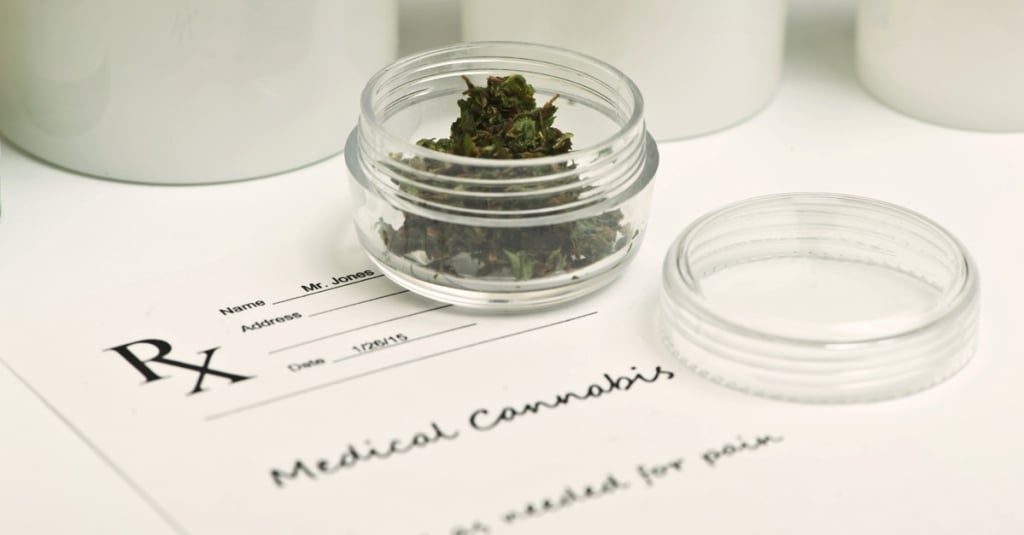.

How Cannabis Research Barriers Are Affecting Progress
Things are never simple when it comes to cannabis. As new policies continue to unlock the herb from its shackles, cannabis scientists are still having a hard time developing a deeper understanding of the plant. Researchers are underfunded, cut off from other sectors of the industry, and given bad-quality samples to study. What can be done?
Contents:
An estimated 147 million people[1] around the world use cannabis each year. Recreationally, people smoke it, eat it, vape it, and even put it in their morning coffee. Millions of people also use the herb for medical reasons. However, the truth is that we still know very little about the herb and how it works in the human body.
The anti-marijuana crisis in the 1930s period led by the USA vastly changed the public perception of the plant, and the federal government ultimately classified it as a Schedule I drug in the Controlled Substances Act of 1970[2].
Today, the legalization of medical and recreational cannabis continues to sweep the world, but the plant has failed to shake off much of the residual stigma. This situation ties up researchers in a web of strict and often illogical regulations, erecting barriers that make life hard for them.
Their efforts to fully understand the plant, how it works in the body, and its medical uses are slowed down and even completely stymied by bureaucratic legislation.
Yet this research is vital. With cannabis becoming more mainstream, there has never been a more significant need for increasingly in-depth research.
Research better educates legislators, doctors, patients and the general public, highlighting what cannabis can and can’t do and helping dispel its stigma.
This leads to safer use, regulation, improved patient treatment and focused product development.
Cannabis Researchers Have Only Scratched the Surface
Chemists have identified over 120 cannabinoids[3]—fascinating molecules largely unique to the herb. They’ve also uncovered the presence of more than 200 aromatic terpenes[4] and a host of other molecules, including flavonoids.
Biologists continue to unravel the mystery of the endocannabinoid system (ECS), a body-wide regulatory network that keeps our other systems functioning optimally. Compounds found in cannabis are able to modulate the ECS to a surprising degree.
Amazingly, the academics behind these findings have managed to take these pioneering steps within a strict and prohibitive framework of regulations. It might seem like they’ve made huge progress in the field of cannabis, and that’s true. But in reality, they’re years behind where they’d like to be due to tough research restrictions.
Now, let’s examine the research blocks individual countries are facing, along with some potential solutions.
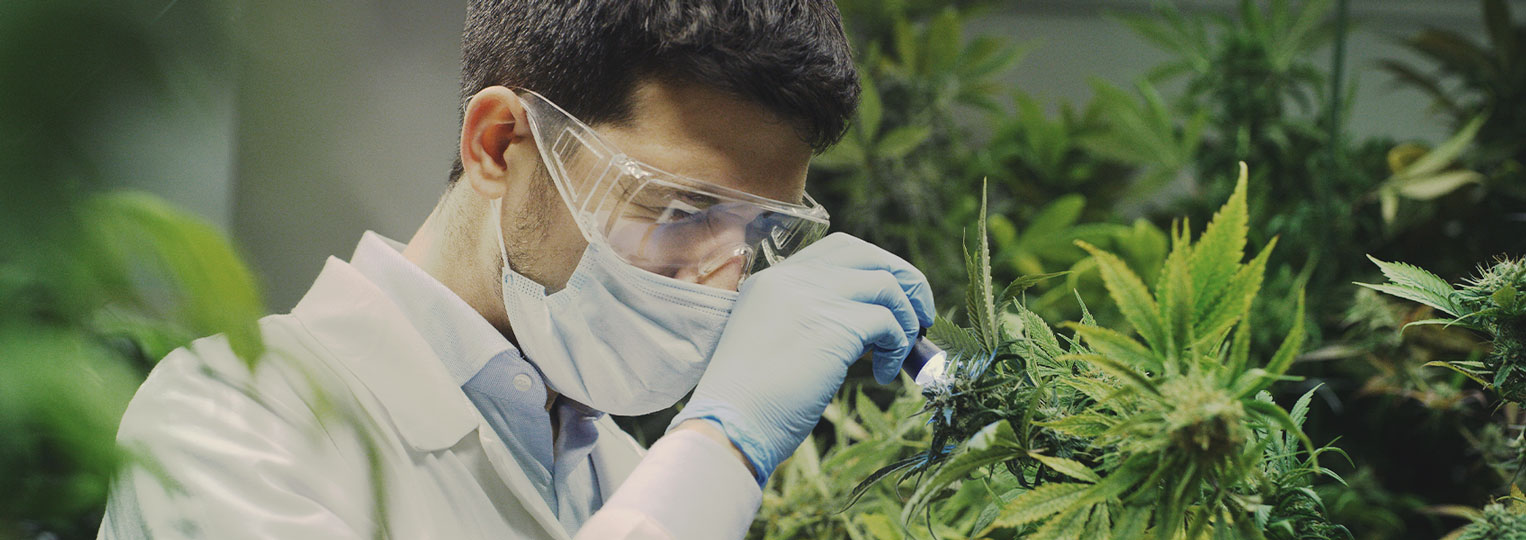
The Situation in the United States
16 states in the nation have legalized recreational cannabis, meaning adults in these regions can walk into a dispensary, purchase some buds, and smoke, dab, and eat weed to their heart's content.
States are free to pass their own laws, but the supreme law held by the federal government can override such legislation, so long as it doesn’t breach the Constitution. Although many states offer legal medical and/or recreational cannabis, the federal government maintains a drastically different point of view.
Regulatory Barriers
The federal Drug Enforcement Administration (DEA) classifies cannabis as a Schedule I drug[5]. Substances placed in this category meet the definition of having “no currently accepted medical use and a high potential for abuse”.
Bizarrely, both cocaine and methamphetamine are ranked as Schedule II substances, where they are recognised for their medical potential. Because cannabis shares the same legal status as heroin in the eyes of the federal government, scientists are required to apply for a licence from the DEA and Food and Drug Administration (FDA) to conduct research on the herb.
The majority of studies regarding the therapeutic potential of cannabis have utilised synthetic versions of chemicals found naturally in the plant. This led the FDA to approve three cannabinoid-based medicines derived from synthetic isolates: Marinol, Syndros, and Cesamet.
In 2018, the agency approved Epidiolex[6] (cannabidiol) as the first cannabis-derived therapeutic. But studying the raw herb remains difficult due to a lack of access and poor-quality material.
Problems With Federal Supplies
Once researchers secure a licence, they can only study cannabis samples provided by DEA-approved sources. For now, the University of Mississippi is tasked with providing cannabis to the academic world. There are serious problems with the federal weed supply. The university harvests around 510kg of cannabis[7] from their indoor and outdoor locations each year. Following the harvest, the technicians grind the flowers into a fine powder and store it in refrigerators at -20°C, sometimes for years.
By the time researchers get their hands on the stuff, it contains very little terpenes alongside THC levels of around 6%. Scientists haven’t taken too kindly to this level of quality. The physician and board member of Doctors for Cannabis, Peter Grinspoon, described it as “brown, muddy garbage[8]”.
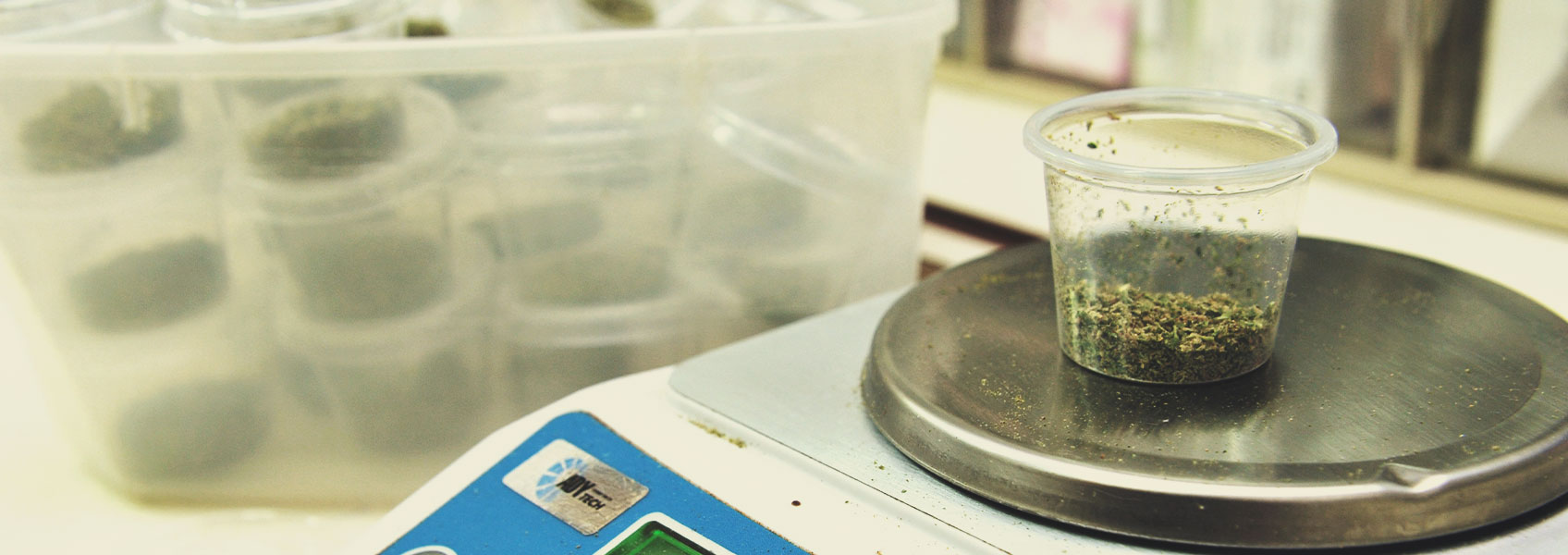
How Research Roadblocks Impact the US Cannabis Market
Not only do these harsh restrictions slow down efforts to understand more about the plant, but they directly impact the cannabis market itself. Cannabis scientists are keen to explore how the high-THC products available in dispensaries are affecting customers. These findings would contribute toward public health, business marketing, and education—allowing customers to make more informed choices.
But they can’t produce valid and relevant findings when they’re left to deal with such poor-quality weed. Jahan Marcu, co-founder of the International Research Centre on Cannabis and Mental health, weighed in on the situation[9], saying, “The federal system seems set up to have cannabis researchers fail”.
Marcu has also highlighted how difficult it remains to conduct solid research on marijuana, stating[10], “Under this regime, it is impossible to get approval for a phase II trial or beyond, and there are tight limitations on publishing cannabis-related clinical data”. Marcu has also mentioned that, in many states, adults can access cannabis as easily as beer, yet scientists aren’t allowed to research what they’re consuming.
Luckily, the DEA has recognised complaints[11] from researchers regarding their schwag. The agency is currently reviewing applications that could allow more growers to support DEA-licenced researchers. Hopefully, these new cultivators can produce cannabis of a similar quality to that which is available in dispensaries across the nation.
Bureaucratic Barriers in Canada
Bureaucratic processes are also inhibiting optimal cannabis research north of the border, in Canada.
Scientists are voicing their concerns over the entanglement of unbiased research in the net of political ideology.
The country legalized recreational cannabis in 2018. Since then, major multinational pharmaceutical companies elected Canada over the United States based on a smoother patent application processes[12].
Despite the keen business interest in Canada’s emerging cannabis market, a large rift exists between the academic and industrial world, and the government is refusing to build a bridge to unify the two. Before we delve into some of these issues, Canada does deserve some credit.
For one, the government regulated the production and sale[13] of edibles, extracts, and cannabis topicals in 2019, an act that will allow an increased variety of products to hit the shelves. Parliament has also poured funding into youth education programmes, addiction centres, and mental health organisations following the legalization of cannabis. Despite this good work, contention remains between scientists and government officials when it comes to opening the doors to research.

University Researchers Are Firing Back
Section 16 of Canada's Cannabis Act[14] prohibits university researchers from forming partnerships with cannabis companies as acknowledged sponsors. However, academics are free to develop such relationships with oil and gas companies, as well as pharmaceutical businesses.
Academics are frustrated at the severing of these two sectors. Opening the doors to these partnerships would unleash a massive income stream to fuel studies that are currently underfunded. These studies would help to paint a relevant picture of the impact of cannabis on public health, society, and its possible role as a therapeutic.
Canadian cannabis scholars deny that these partnerships would only serve invested commercial interests. While these factors serve to draw in big business, the outcomes from this research would serve the country, and the cannabis market, as a whole.
Instead, the government officials are working as middlemen. They take tax generated by the cannabis industry and distribute it to universities, but refuse to let the two sectors work together independently.
The University of Alberta has proposed several recommendations to assist the lifting of these research barriers. These points include:
- Lift the research restrictions between the cannabis industry and universities.
- Embrace the achievements of scientific cannabis research and see them as equal to those associated with any other agricultural commodity.
- Leverage existing partnership opportunities by letting cannabis companies get involved as collaborators.
- Develop best practices to guide ethical relationships between researchers and companies.
- Direct equal funding to studies that examine the therapeutic benefits of cannabis and those that investigate negative health effects.
Marijuana Research in Israel: A Leading Model
Israel has a relatively relaxed approach to cannabis. Although not legal, citizens can get away with possession of amounts less than 15g without facing prosecution. Despite lagging behind when it comes to recreational weed, the country leads the world in medical cannabis innovation.
Unlike in the United States, the Israeli government makes it exceptionally easy to research cannabis. The nation also serves as an example for Canada; they’ve shown what can happen when universities and the cannabis industry are free to collaborate.
In 2019, the Hebrew University of Jerusalem hosted a cannabis conference[15] that aimed to build relationships between the institution and big industry players. Far from novices in the field, the Hebrew University has given rise to legendary cannabis scientists such as Dr Raphael Mechoulam, the man who discovered THC.
The Hebrew University has also set up the Multidisciplinary Centre for Cannabinoid Research. This body supports over 30 labs across the country and focuses on four main research areas:
- Related agricultural technologies
- Formulation and manufacturing methods
- Novel therapeutics
- Combination treatments
The one-day conference held by the university facilitated face-to-face meetings between cannabis entrepreneurs and faculty members. This kind of environment allows the two sectors to brainstorm, plan, and pave a way forward without too much meddling by bureaucratic middlemen. The year prior, in 2018, the university also secured 25 licencing agreements and research collaborations with the industry.
Cannabis scholars also receive support from the Ministry of Health. In 2018, the agency donated 8 million shekels[16] to several weed research programmes. The authorities are in favour of more research to foster an evidence-based approach to medical cannabis, a goal only achievable through the promotion of research and the advancement of scientific knowledge in the area.
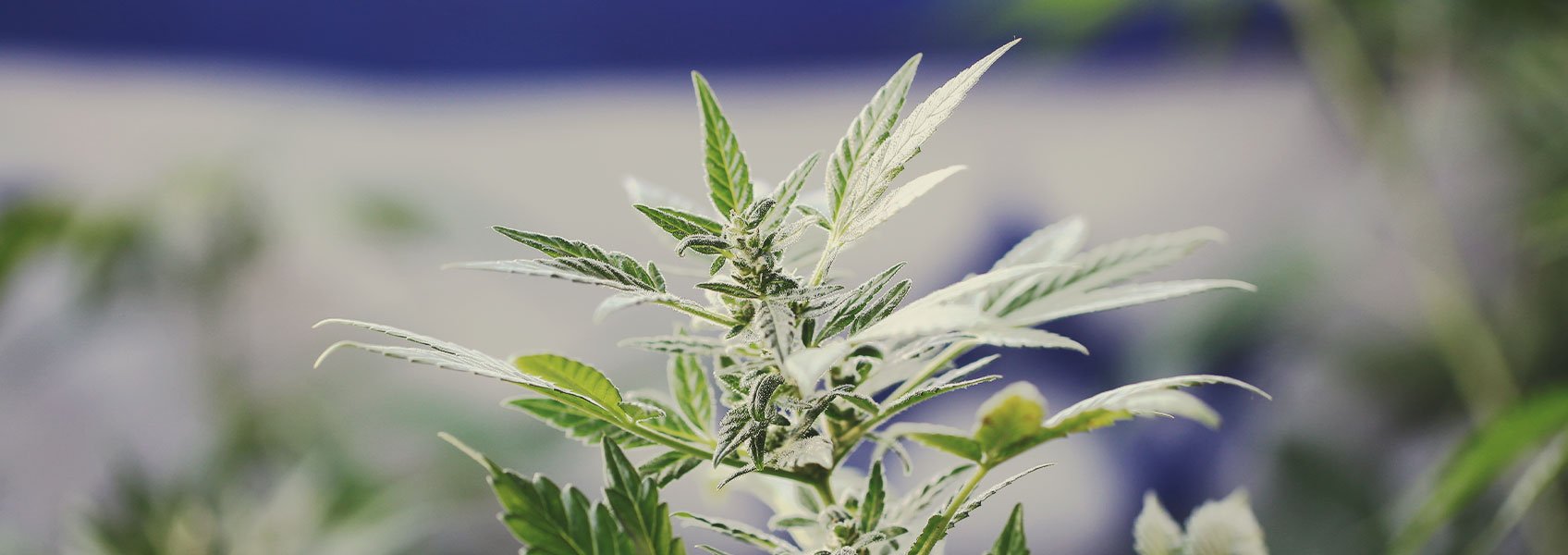
Current Developments in Israeli Cannabis Market Research
Researchers in Israel are pushing the boundaries when it comes to cannabis research. The largest licenced grower currently cultivates 230 strains[17] in their greenhouse!
Some other interesting developments include:
- Testing cannabinoids[18] on the white blood cells of COVID-19 patients.
- The pharmaceutical development[19] of cannabinoid acids.
- Exploring the role of cannabis against Alzheimer's disease[20].
- Exploring the therapeutic potential[21] of combinations of cannabis, medicinal mushrooms, and other herbs.
Israel still has a ways to go when it comes to recreational cannabis, but they’re certainly leading from the front in the field of medical research and innovation.
How Cannabis Laws Affect Research in Europe
Europe presents a mixed bag of cannabis laws. Many countries, including Germany, Italy, Belgium, and the Scandinavian nations have a medical cannabis programme in one form or another. However, it remains difficult for the majority of patients to access medical cannabis legally.
In countries such as Germany, the price of medical cannabis[22] remains high because insurance companies often refuse to cover the costs. In the United Kingdom, only a handful of patients are able to access cannabis. The prescription of cannabis medications is also limited to very few conditions, including childhood epilepsy, chemotherapy-induced nausea, and multiple sclerosis.
Where Can Europe Go From Here?
The sheer lack of human trials has stunted the scientific understanding and medical applications of the herb in Europe over the past few decades. Research restrictions are a hallmark of cannabis prohibition, after all.
Stuart Lambie, Secretary-General of Medical Cannabis Europe, has highlighted the harm caused by major barriers to research[23] on the continent, stating:
“Cannabis has had very little real research conducted on it over the years, and because of its illegality we are essentially starting from scratch. What is important now is to define very clear research objectives—there are all kinds of illnesses which could be alleviated by the use of cannabis or cannabinoids, but where official research is currently lacking”.
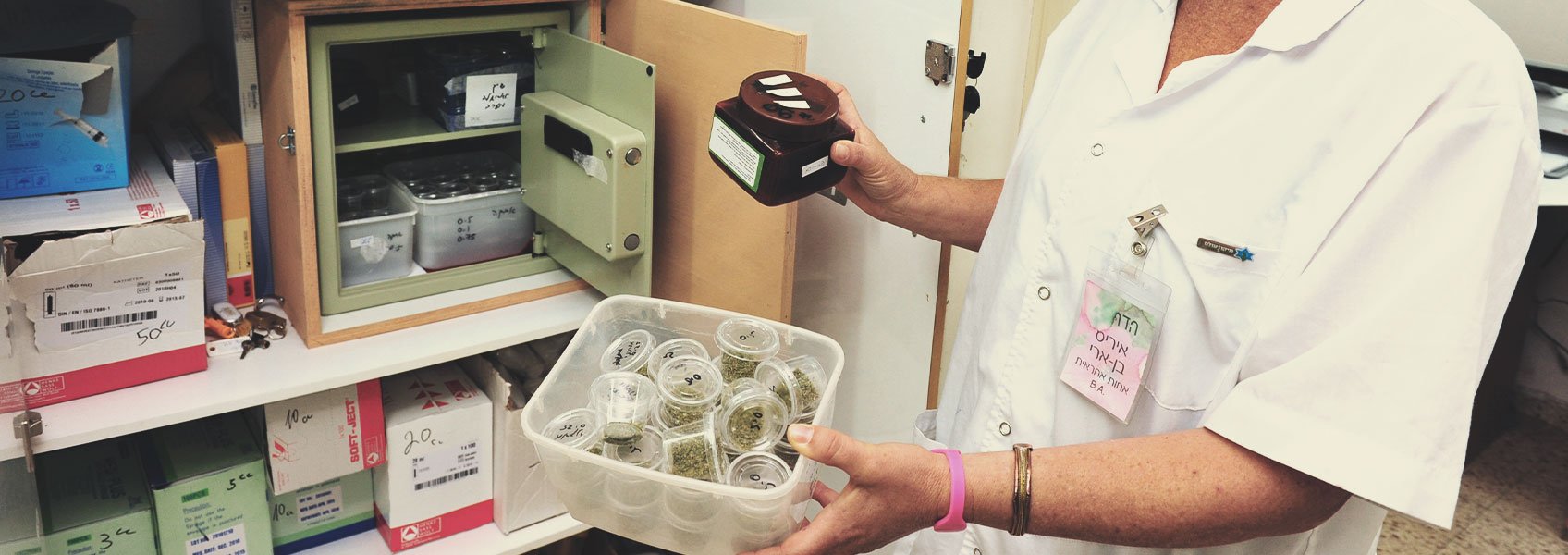
Lambie has also pointed toward a possible solution set to gain momentum in Europe over the next several years: “We have received confirmation that the European Commission will welcome applications for medical cannabis research funding through the Horizon research funding programme”.
The European Union’s €100-billion Horizon programme boasts the status of the world’s largest multinational research and innovation programme. Horizon EU called for its first wave of grant applications[24] during February 2021 and will continue to dish out cash over the next seven years. Horizon will focus on key issues including health and climate change, and cannabis researchers are hoping to secure a piece of the pie.
The Cannabis Research Revolution: Progress and Pushback
It’s clear that even with the progress that’s been made, we're still a long way from utilising the herb to the best of our ability. Ultimately, limiting research on any topic is never a good thing. More research means a better understanding of how cannabis can assist a larger amount of health conditions, not to mention the economy by creating jobs and boosting tax revenue. This, in turn, will generate a knock-on effect, improving the education of medical professionals, government officials, and the general public.
- Alcohol, Drugs and Addictive Behaviours https://www.who.int
- About Cannabis Policy | APIS - Alcohol Policy Information System https://alcoholpolicy.niaaa.nih.gov
- CSIRO PUBLISHING | Australian Journal of Chemistry https://www.publish.csiro.au
- The Cannabis Terpenes https://www.ncbi.nlm.nih.gov
- Drug Scheduling https://www.dea.gov
- FDA Approves First Drug Comprised of an Active Ingredient Derived from Marijuana to Treat Rare, Severe Forms of Epilepsy | FDA https://www.fda.gov
- Cannabis research stalled by federal inaction https://cen.acs.org
- Legal weed is everywhere — unless you’re a scientist - POLITICO https://www.politico.com
- Marijuana researchers shackled by federal laws, regulations https://www.mercurynews.com
- Regulators need to rethink restrictions on cannabis research https://www.nature.com
- US DEA moves to expand cannabis for research https://cen.acs.org
- Why is Big Pharma Heading to Canada for its Cannabis Patents? - Canna Law Blog™ https://harrisbricken.com
- Health Canada finalizes regulations for the production and sale of edible cannabis, cannabis extracts and cannabis topicals - Canada.ca https://www.canada.ca
- Cannabis Act https://laws-lois.justice.gc.ca
- Hebrew University hosts cannabis conference to forge way forward | The Times of Israel https://www.timesofisrael.com
- Israel to legalize medical cannabis this year | Biz Israel http://www.bizisrael.com
- Israel to legalize medical cannabis this year | Biz Israel http://www.bizisrael.com
- Israeli Researchers Say Medical Cannabis Could Treat Some COVID-19 Symptoms https://nocamels.com
- Father of cannabis research plans a new revolution nearly 60 years later - The Jerusalem Post https://www.jpost.com
- Notes From The Cutting Edge: Israeli Researcher Dedi Meiri On Cannabis, Alzheimer’s And Dementia https://www.forbes.com
- An Israeli company combines mushrooms with marijuana to treat diseases https://drugsinc.eu
- Medical cannabis policy and practice in Germany https://www.healtheuropa.eu
- Medicinal cannabis policy and research in Europe https://www.healtheuropa.eu
- How Europe’s €100-billion science fund will shape 7 years of research https://www.nature.com


























